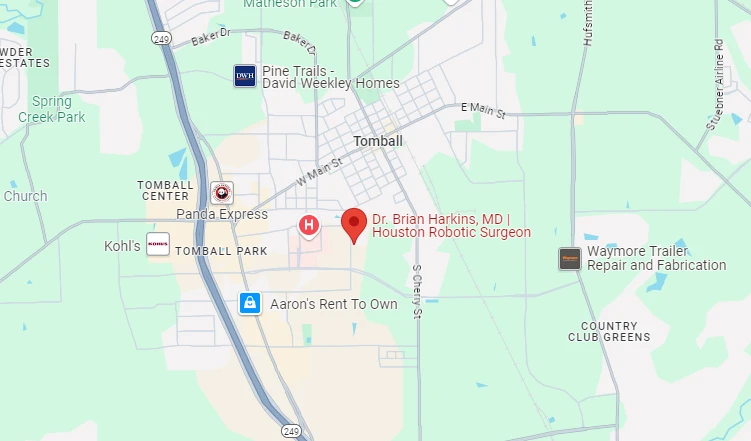
If you’ve ever wondered, “What does a colorectal surgery do in Houston, TX?”, the answer involves much more than just operating. Colorectal surgery is a surgical subspecialty that addresses disorders of the colon and rectum, the anus, and the entire large intestine. In the greater Houston community—from Houston Methodist in the Texas Medical Center to Baylor St. Luke’s in West Houston—board-certified colorectal surgeons offer the full spectrum of colorectal care. They combine multidisciplinary cancer programs, enhanced recovery pathways, and state-of-the-art robotic-assisted technology to deliver the best possible outcomes for both benign and malignant disease.
In Houston, TX, a board-certified general surgeon who performs colon and rectal surgeries treats a wide range of conditions affecting the colon, rectum, and anus, including hemorrhoids, fistulas, inflammatory bowel disease, and colorectal cancer. Whether you need a routine colonoscopy, minimally invasive surgery for Crohn's disease, or complex cancer surgery, these experts help you return to normal bowel movements and everyday life with fewer complications and a shorter hospital stay.
After five years of general surgery training, a doctor completes a fellowship in colon and rectal surgery. This additional education hones advanced surgical techniques—open, laparoscopic, and robotic—as well as the nuanced management of complex rectal diseases. Because surgery is a surgical subspecialty, you gain access to physicians who dedicate each day to the anatomy and pathology of the intestine, sphincter, and pelvis.
| Common Condition | Possible Tests | Typical Treatment Path |
|---|---|---|
| Hemorrhoid | Anoscopy, colonoscopy | Rubber-band ligation → minimally invasive surgical hemorrhoidectomy if severe |
| Diverticulitis | CT abdomen, colonoscopy | Antibiotics, diet → segmental colectomy by laparoscopic or robotic surgery |
| Rectal Cancer | Colonoscopy, MRI, EUS | Neoadjuvant chemo-radiation → robotic low-anterior resection or APR |
| Crohn’s Disease | CT enterography, colonoscopy | Biologics → ileocolic resection, possible temporary colostomy |
| Fistula-in-Ano | Exam under anesthesia, MRI | Seton placement → advancement flap or LIFT procedure |
Ignoring bowel problems risks bigger issues down the road. If you notice blood in the toilet, worsening abdominal pain after meals, or unexplained fatigue, schedule an evaluation. Houston’s high-volume specialty practices can often coordinate imaging, lab work, and surgical procedures within days, streamlining your journey toward faster recovery and fewer complications.
Most Houston clinics leverage the same technology found at any top-tier cancer center worldwide. From virtual colonoscopy to high-resolution MRI, the focus is precision. Accurate staging of colon cancer surgery guides whether you need chemotherapy first or can proceed directly to minimally invasive surgical resection.
Not every diagnosis requires the operating room. A multidisciplinary team—including gastroenterology, oncology, radiology, and the department of surgery—meets weekly to discuss complex cases. Together they decide if medical therapy, endoscopic intervention, or robotic excision offers the best route to cure.
Using small incisions, laparoscopic and robotic colorectal techniques decrease pain, shorten narcotic use, and reduce surgical site infections. Patients frequently go home in two to three days and resume desk work within 4-6 weeks—far quicker than with traditional open surgery.
For advanced disease, surgeons may perform a total mesorectal excision, right hemicolectomy, or proctocolectomy with ileal pouch formation. Whenever feasible, the procedure is robotic-assisted to preserve nerves, minimize blood loss, and ensure faster return of bowel function.
Whether your surgeon chooses open surgery, minimally invasive surgical techniques, or robotic colorectal resection, the goal is complete tumor removal with negative margins and minimal trauma. Intra-operative fluorescence and nerve monitoring further protect healthy tissue.
Look for a surgeon who is board-certified, performs a high number of colorectal procedures annually, and participates in a comprehensive cancer program. Ask about outcomes, readmission rates, and whether they collaborate with nutritionists and pelvic floor therapists. Location matters too—congested traffic can make travel across the Houston area challenging during recovery.
From simple hemorrhoid banding to complex cancer surgery, Houston's board-certified general surgeons who perform colon and rectal surgeries deliver comprehensive, multidisciplinary care using minimally invasive techniques that promote faster recovery and shorter stays in the hospital. If you have concerning symptoms or simply need a screening colonoscopy, reach out to a board-certified expert and regain confidence in your digestive health.
A colorectal surgeon in Houston specializes in diagnosing and treating disorders of the colon, rectum, and anus. This includes everything from routine screenings to minimally invasive procedures for cancer, inflammatory bowel disease, hemorrhoids, and more. Many also perform robotic-assisted surgeries to ensure quicker recovery and reduced complications. If you're dealing with GI symptoms or need a surgical consultation, a colorectal surgeon can guide you through diagnosis, treatment, and recovery with expert care.
Most patients who undergo laparoscopic or robotic colectomy at Houston Methodist or other local centers stay two to three nights. Enhanced Recovery protocols—early walking, limited narcotics, and early feeding—continue at home, helping many people return to desk jobs within 4-6 weeks.
Modern chemoradiation, transanal minimally-invasive surgical techniques, and precise robotic excision have dramatically reduced permanent colostomy rates. Your surgeon will assess tumor location, response to therapy, and sphincter function before recommending whether a temporary or permanent stoma is necessary.
No. Crohn’s disease and ulcerative colitis are primarily treated medically with biologics, immunomodulators, and dietary changes. Surgery becomes necessary for complications such as strictures, fistulas, or malignancy. Even then, minimally invasive resection or stricturoplasty can maintain intestinal length and function.
TAMIS allows removal of certain benign polyps or early cancers through the anus without abdominal incisions. Using specialized ports and laparoscopic instruments, the surgeon excises the lesion, closes the defect, and preserves rectal function—often as an outpatient procedure.
Standard guidelines recommend surveillance colonoscopy one year after resection, then at three years, and every five years thereafter if no new polyps are found. Your specific interval may vary based on pathology, genetics, and discussion with your multidisciplinary team.
Discomfort is expected but usually manageable with oral analgesics. Minimally invasive options such as the LIFT procedure or advancement flap lower postoperative pain compared to traditional fistulotomy while protecting the sphincter. Most patients resume normal activities in one to two weeks.
Adopting a high-protein, low-residue diet for the first few weeks, staying hydrated, and performing light walking several times daily speed healing. Avoid heavy lifting, maintain glycemic control if diabetic, and attend scheduled follow-up visits to monitor incisions and bowel function.
Most major insurers treat robotic procedures like standard laparoscopic surgery, covering them when medically indicated. Pre-authorization is essential; your surgeon’s financial counseling team can verify benefits, co-pays, and potential out-of-pocket expenses before scheduling the operation.
Yes. Persistent rectal bleeding, severe abdominal pain, unexplained weight loss, new bowel habit changes, or anemia on lab work warrant prompt evaluation. Early diagnosis through colonoscopy or imaging increases the likelihood of minimally invasive treatment and better long-term outcomes.


Dr. Brian Harkins is a renowned surgeon specializing in advanced, minimally invasive, and robotic surgical techniques. With a dedication to innovation and personalized patient care, he has transformed countless lives by delivering exceptional outcomes.

I want a website like this, where do i start?